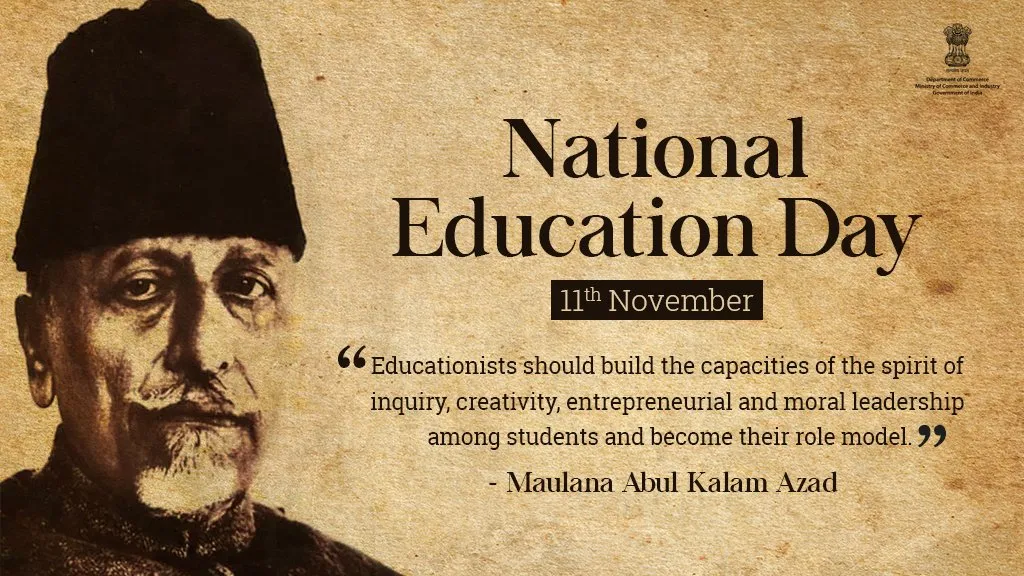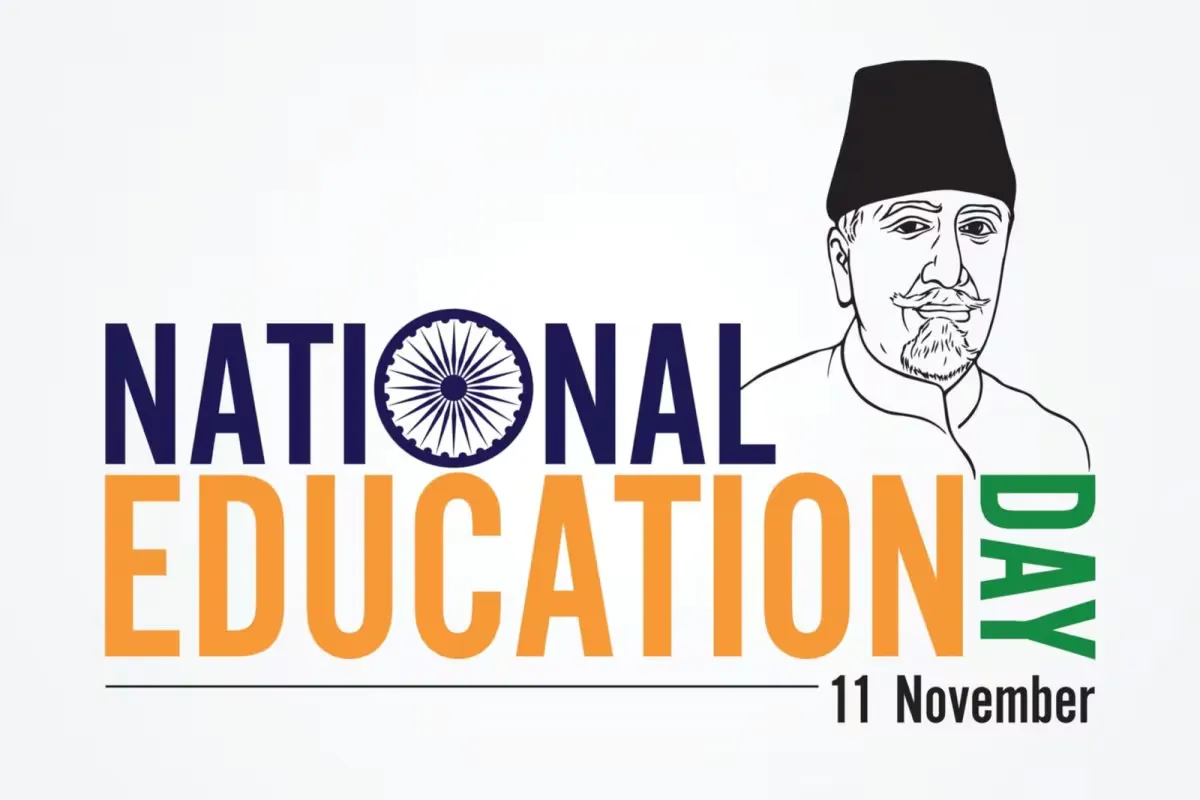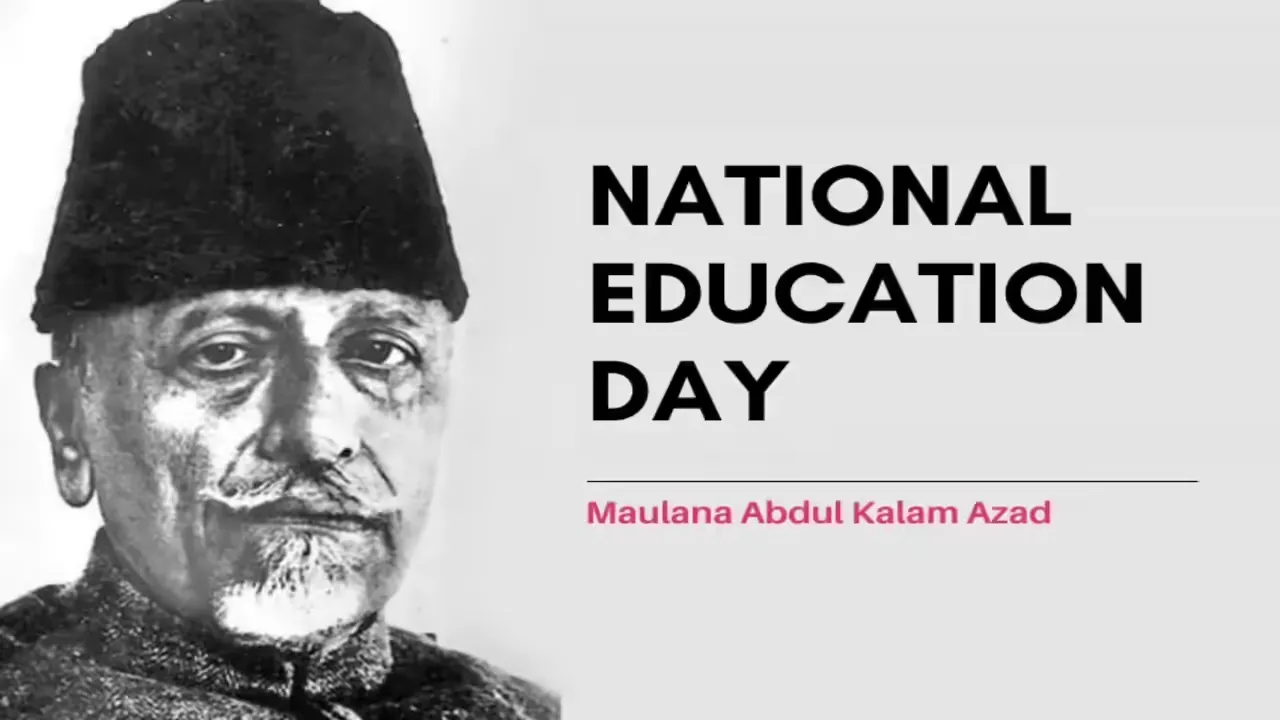Every November 11, classrooms across India come alive with something more than just lessons—they buzz with the spirit of learning itself. Posters, debates, and essay competitions fill the day as students and teachers come together to celebrate National Education Day—a day that reminds us how powerful education can be in shaping not only young minds, but the very future of our nation.
This day is celebrated to honor Maulana Abul Kalam Azad, India’s first Education Minister and one of the greatest champions of knowledge and inclusion our country has ever known. Born on November 11, 1888, Azad was not only a freedom fighter and a scholar but also a visionary who believed that education was the strongest weapon to build an independent, progressive, and self-reliant India.

When India gained independence, Azad’s mission was clear: to build a system where every child, rich or poor, boy or girl, could learn, dream, and achieve. He once said, “Education imparted by heart can bring revolution in the society.” And he truly lived by those words.
Under his guidance, India saw the birth of institutions that went on to define academic excellence for generations—the Indian Institutes of Technology (IITs), the University Grants Commission (UGC), and the All India Council for Technical Education (AICTE). These institutions became the pillars of higher education, nurturing engineers, innovators, and thinkers who have taken India’s name to the world stage.
But Azad’s vision was never limited to universities or technical institutions. He believed that education must start at the roots. He pushed for free and compulsory schooling for all children up to the age of 14, knowing that a strong foundation in primary education was essential for building a strong nation. To him, education wasn’t just about textbooks—it was about awakening curiosity, nurturing compassion, and opening doors to opportunity.

Every year, schools and colleges celebrate National Education Day with debates, storytelling sessions, seminars, and art competitions. But beyond the events, the day carries a deeper message—one that asks every Indian to pause and think: What does education really mean to us?
It’s easy to see education as a pathway to a good job or a better life. But Azad saw it as something much bigger—a force that empowers individuals to question, to imagine, and to create change. Education, in his eyes, was the key to equality, the bridge that could close the gaps between privilege and poverty, between ignorance and understanding.
Even today, his vision continues to guide us. As India races toward becoming a global knowledge hub, challenges like school dropouts, gender inequality, and the digital divide remind us that there’s still work to do. The pandemic, for instance, showed how unequal access to technology can cut learning short for millions of children. And yet, it also showed the resilience of students and teachers who adapted, innovated, and refused to give up on education.



